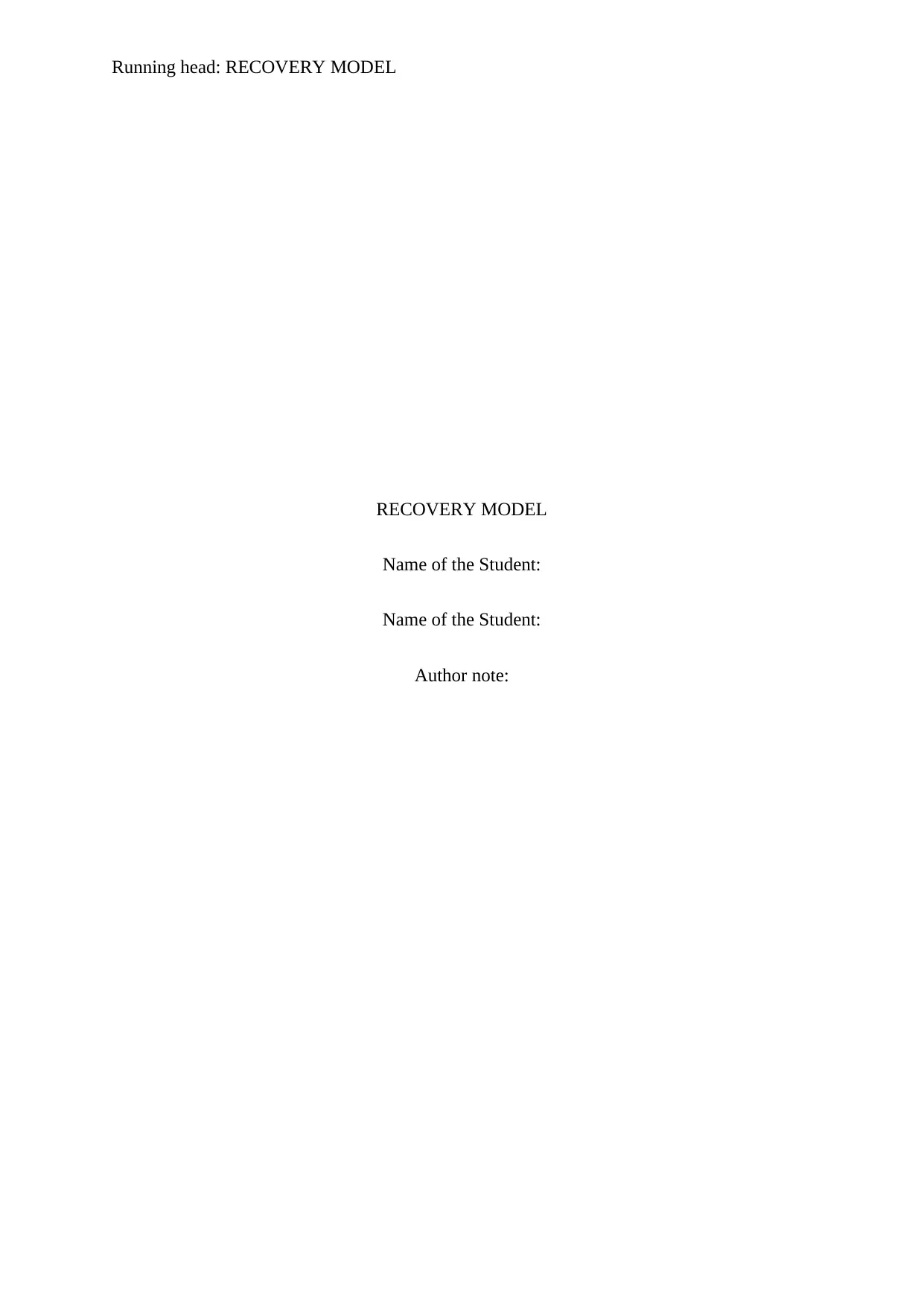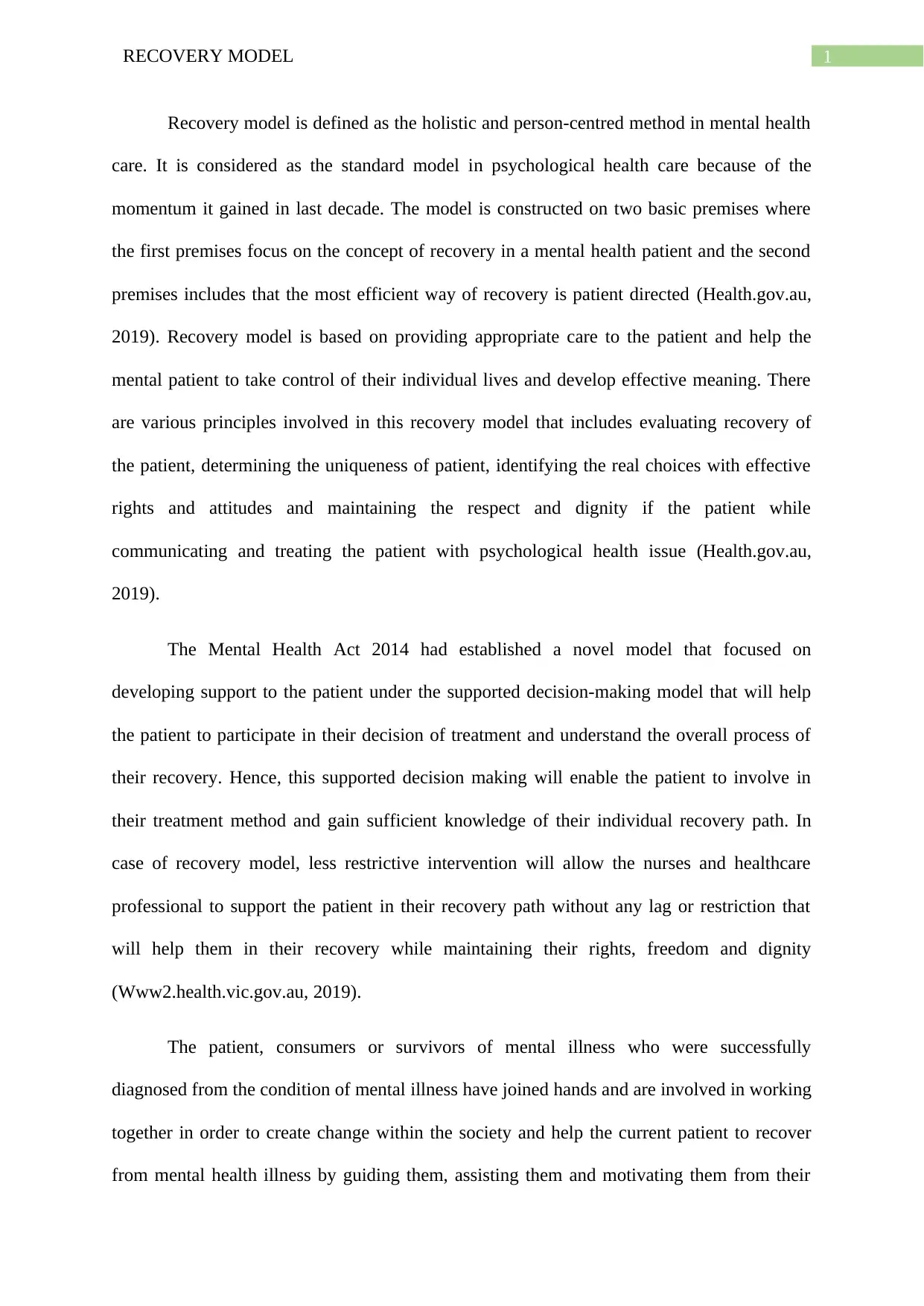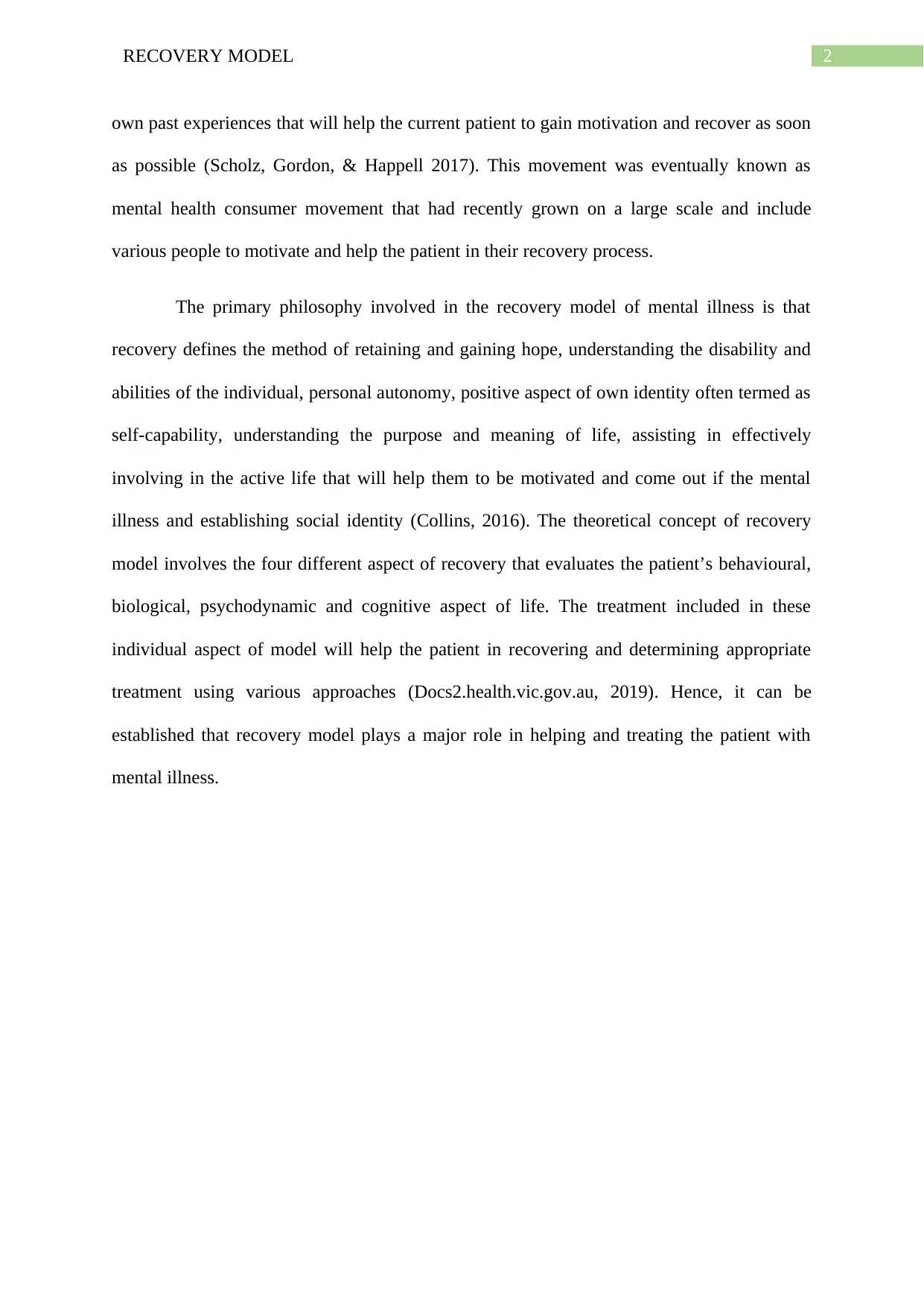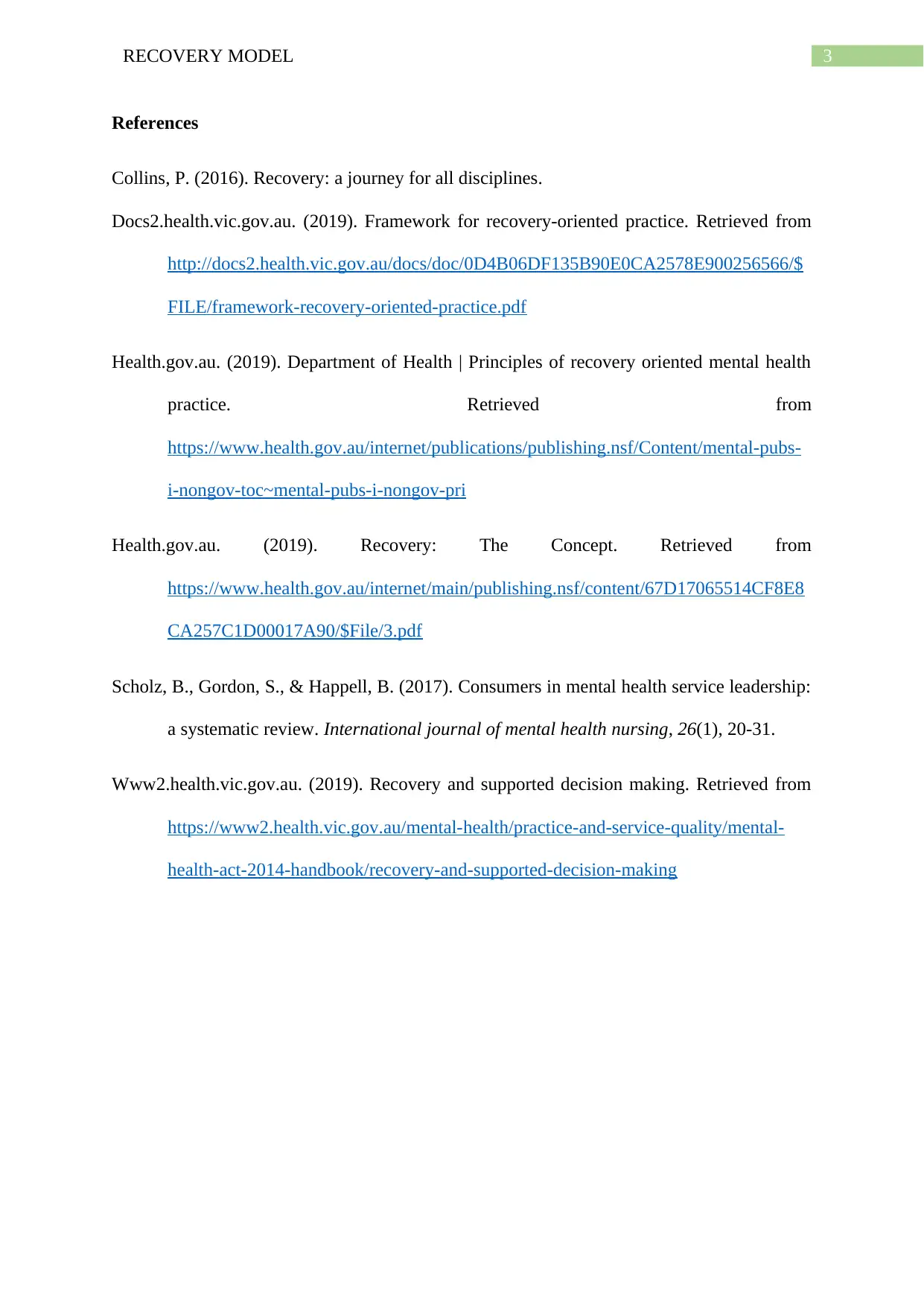The Recovery Model: Principles, Consumer Role, Theory & Decisions
VerifiedAdded on 2023/04/03
|4
|625
|448
Essay
AI Summary
This essay provides a comprehensive overview of the Recovery Model in mental health care, defining it as a holistic and person-centered approach. It outlines the model's core principles, including patient-directed recovery, individualized care, and respect for patient autonomy. The essay discusses the role of supported decision-making and less restrictive interventions, as emphasized by the Mental Health Act 2014, in empowering patients to actively participate in their treatment. Furthermore, it examines the significant impact of the mental health consumer movement in shaping the Recovery Model and highlights the theoretical underpinnings, encompassing behavioral, biological, psychodynamic, and cognitive aspects of recovery. The essay concludes by emphasizing the crucial role of the Recovery Model in supporting and treating individuals with mental illness.
1 out of 4











![[object Object]](/_next/static/media/star-bottom.7253800d.svg)